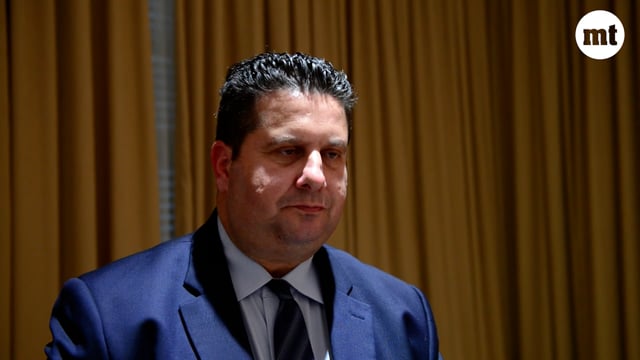[WATCH] Societal shift needed for people to keep disputes out of court, minister says
Justice Minister wants to address disconnect between community and institutions, in launch of campaign encouraging children to solve disputes through mediation
.jpg)

A mentality shift is needed to encourage people to solve problems through mediation and keep disputes out of court as much as possible, Justice Minister Edward Zammit Lewis said.
He was speaking at the launch of an initiative to develop Malta’s restorative justice model for children. The initiative aims to educate children in the use of mediation to solve their disputes.
The initiative is a joint venture between the Malta Foundation for the Wellbeing of Society, chaired by former president Marie-Louise Coleiro Preca, and the justice and education ministries.
Zammit Lewis said the traditional criminal justice system was often criticised as too formal and punitive.
"This is why the government, together with the MFWS and the Education Ministry, is working to modernise the system in a way that addresses the disconnect between the community and institutions. We plan to introduce a series of restorative justice programmes that will have an impact on the criminal justice process," Zammit Lewis said.

He said the initiative will empower students to resolve conflicts by themselves or in small groups. Fortunately, there are resources to train educators in the area of restorative justice and develop a plan.
Zammit Lewis added that he believed schools were the foundation of society and the key to building a stronger tomorrow.
MFWS chair, Marie-Louise Coleiro Preca, said the organisation wanted to see a shift in society’s mentality by focusing on children and empowering them with the tools to improve their skills to better "communicate, empathise, listen and speak in such a way that will ultimately help in conflict resolution and in understanding each other's differences."
Coleiro Preca, who is also Eurochild president, said the first step in this process was listening to the Children’s Council to gauge their views and experiences.
This will lead to the creation of Restorative Practice Circles, which will provide a learning opportunity for students to build social-emotional skills and lead to better emotional literacy, Coleiro Preca said.
Education Minister Justyne Caruana said this was an important initiative, especially when considering the new reality brought about by the worldwide pandemic.
"This exercise will have a direct impact on our children, helping them in their development, driving a mentality shift, and most importantly, making them better citizens of our country," she said.
MFWS has also sought the expertise of anthropologist Susan Hirsch, a professor in conflict resolution at George Mason University in Washington DC, to guide them in implementing this project and drafting the Malta model for restorative justice for children. Hirsch is running a similar programme in the US.























